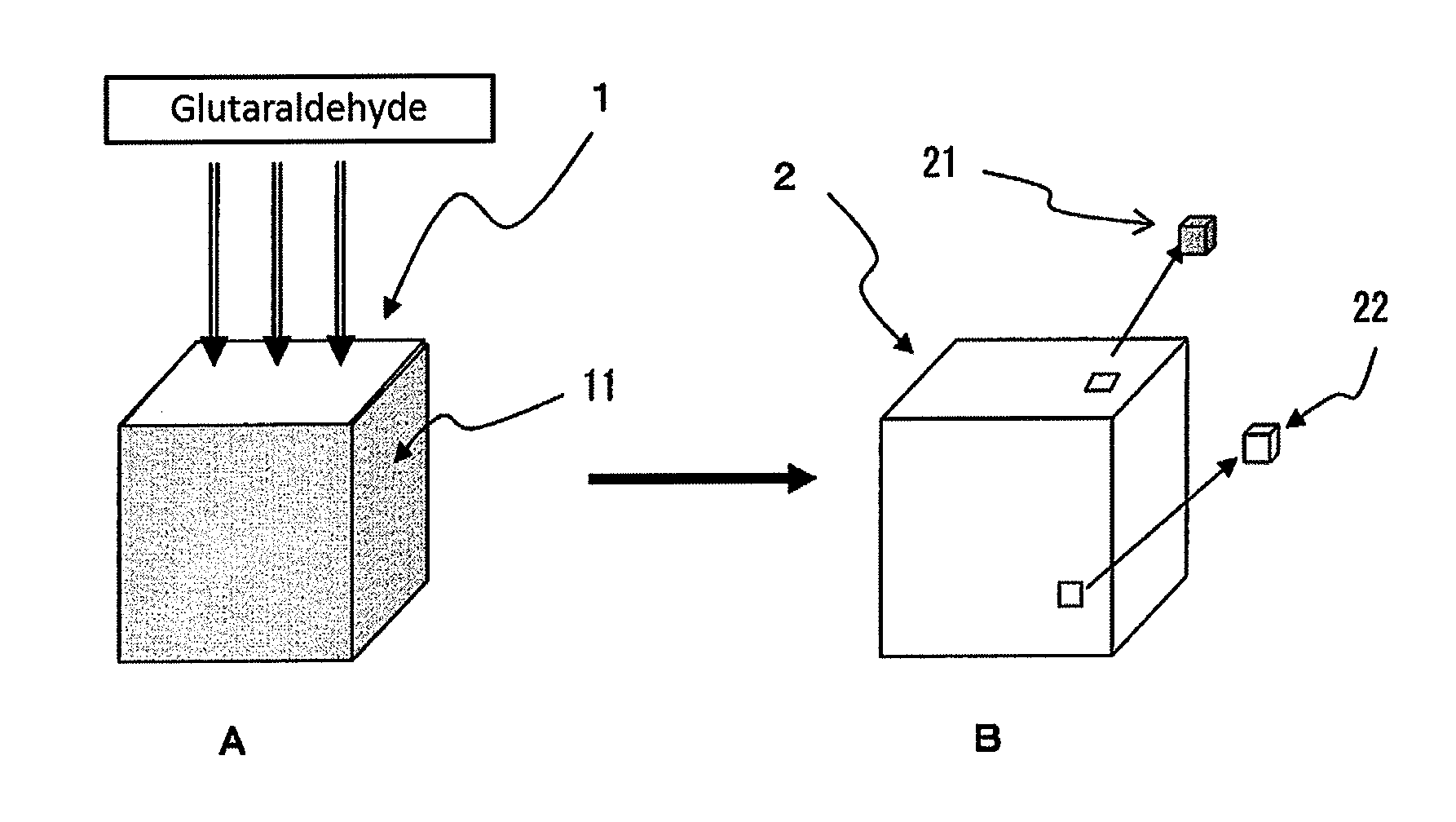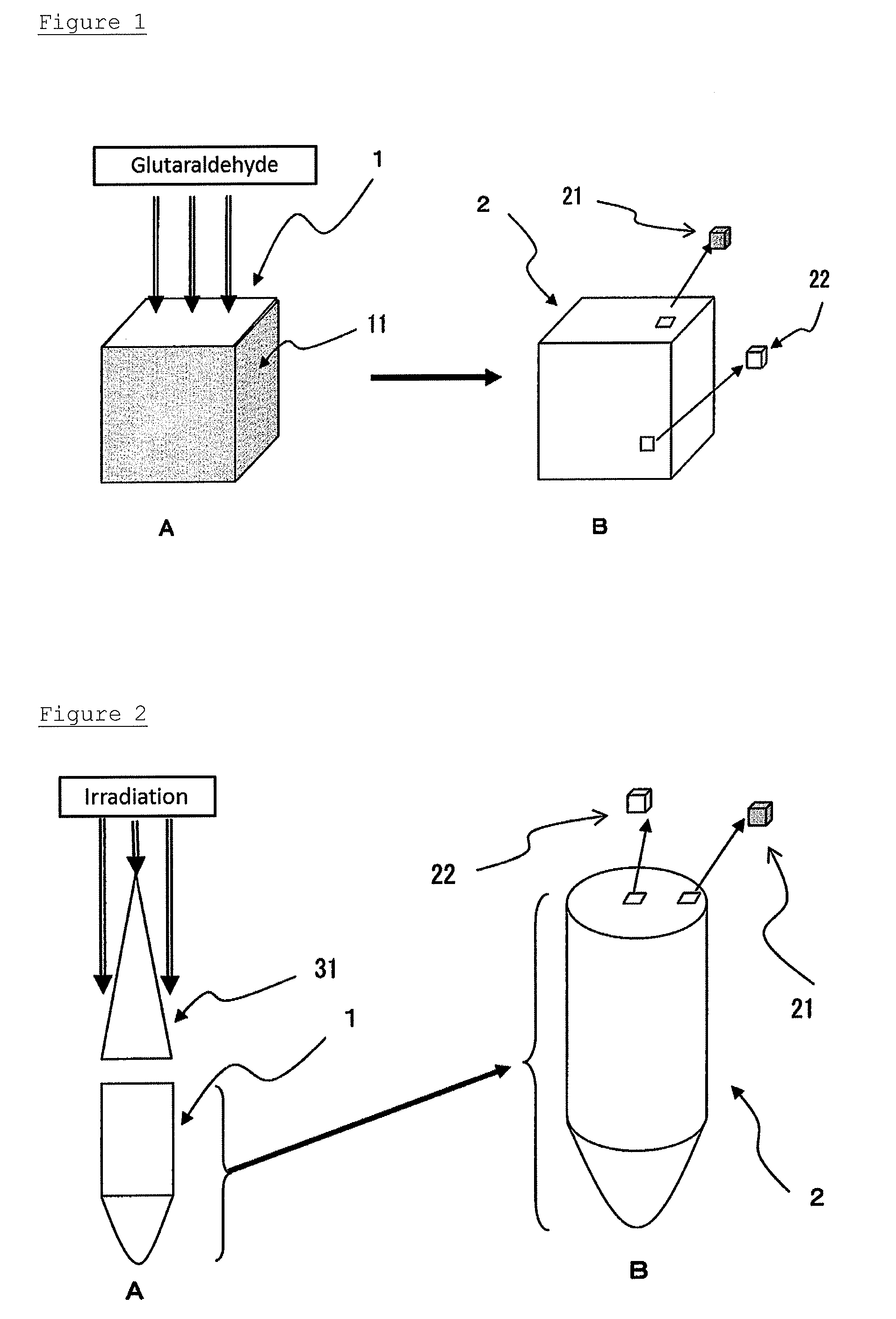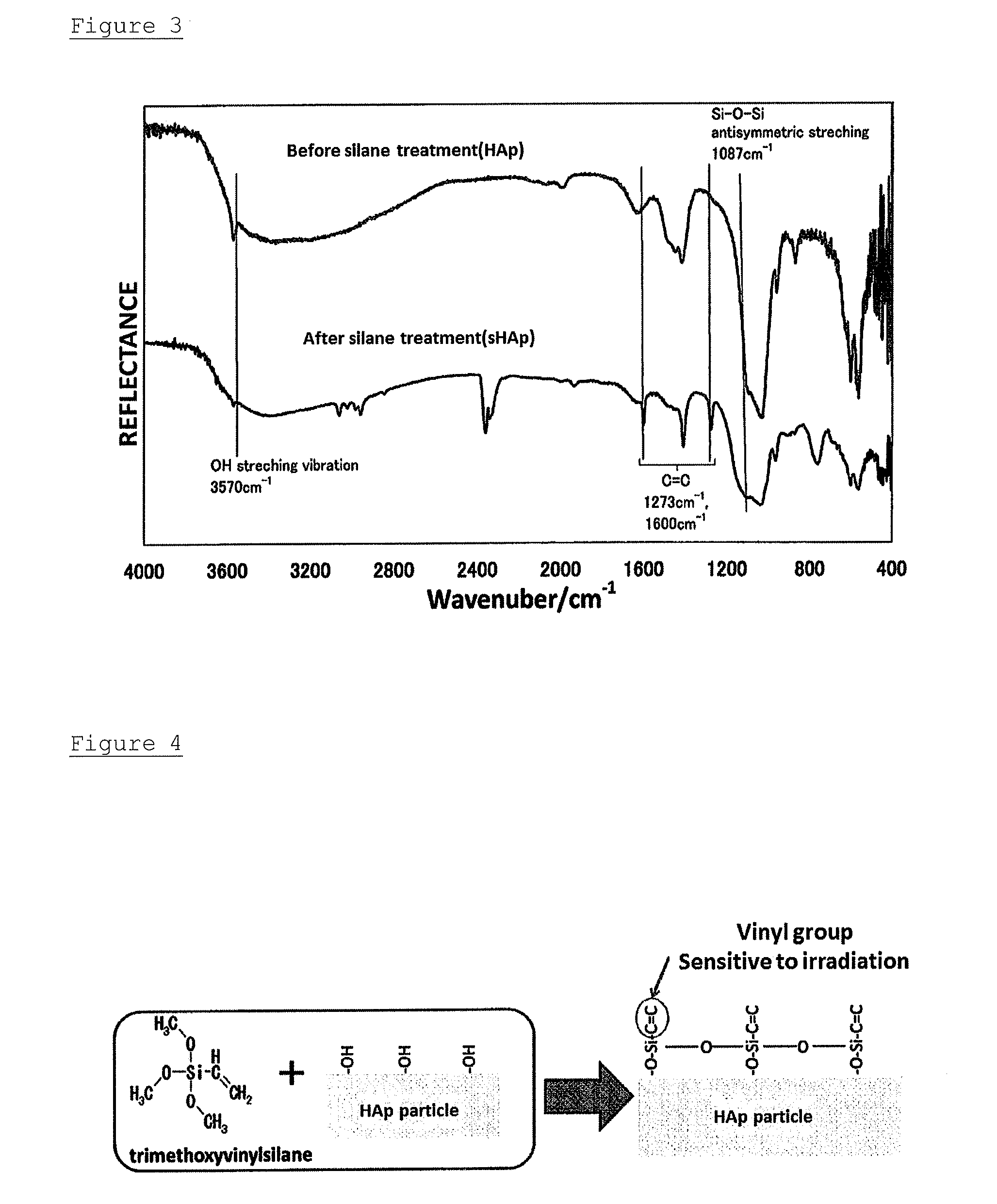Porous composite with graded bioabsorbability, artificial bone using the same, and manufacturing method thereof
a bioabsorbable, graded technology, applied in the direction of bone implants, tissue regeneration, prosthesis, etc., can solve the problems of infection, limited amount of autologous bone to be collected, and high patient burden, so as to promote bone tissue regeneration and improve the effect of bone tissue regeneration, excellent mechanical properties, and rapid bone remodeling
- Summary
- Abstract
- Description
- Claims
- Application Information
AI Technical Summary
Benefits of technology
Problems solved by technology
Method used
Image
Examples
example 1
Example 1
[0133]In this example, the porous composite with gradient bioabsorbability was manufactured by the glutaraldehyde vapor deposition method.
(i) Preparation of the Hydroxyapatite Crystal Suspension
[0134]The hydroxyapatite crystal is synthesized through the wet method. 0.6 mol / L of phosphoric acid solution (2 litters) was slowly dropped into 0.5 mol / L of calcium hydroxide suspension (4 litters) until becoming pH7.5. The resulting suspension was dried at 120° C., and then calcined at 1200° C., for 30 minutes using an electrical furnace. It was confirmed that the synthesized hydroxyapatite was single phase by measuring powder X-ray diffraction.
(ii) Preparation of the Collagen Fiber Suspension
[0135]A tilapia scale collagen was dissolved to a concentration of 1% by weight of tilapia scale collagen with hydrochloric acid solution (pH4.0). A buffer (PB) was prepared by mixing 0.1 mol / L of sodium hydrogenphosphate solution with 0.1 mol / L of monobasic sodium phosphate so that the pH wa...
example 2
[0139]In this example, the porous composite swelled was manufactured by irradiation.
(i) Preparation of Hydroxyapatite Crystal Suspension and Introduction of Vinyl Group Thereto
[0140]The hydroxyapatite crystal is synthesized through the wet method. 0.6 mol / L of phosphoric acid solution (2 litters) was slowly dropped into 0.5 mol / L of a calcium hydroxide suspension (4 liters) until it reached pH7.5. The resulting suspension was dried at 120° C., and then calcined at 1200° C., for 30 minutes using an electrical furnace. It was confirmed that the synthesized hydroxyapatite was single phase by measuring powder X-ray diffraction.
[0141]The introduction of the vinyl group was performed as follows.
[0142]The hydroxyapatite suspension was centrifuged so that a precipitate was separated from a liquid, and then ethanol was added to the precipitate. The hydroxyapatite suspension (60 mg / mL) was prepared by repeating the above procedure. On the other hand, trimethoxyvinylsilane was added to purifie...
example 3
(i) Preparation of Hydroxyapatite-Collagen Composite Fiber
[0147]200 mL of collagen solution wherein 2.0 g of tilapia scale collagen was dissolved in a phosphoric acid solution (0.15 mol / L), and 200 mL of 0.5 mol / L of a calcium hydroxide suspension (0.25 mol / L) were prepared. 200 mL of purified water were charged to a 1000 mL volume of a beaker. The prepared collagen solution and calcium hydroxide suspension were simultaneously added to the purified water of 25° C., at 4 mL / min of drip rate, so that the pH was pH8.0±0.5. After dropping, a supernatant was removed by suction filtration. The resulting hydroxyapatite-collagen composite fiber was frozen at −20° C., and then freeze-dried. According to the results of the differential thermal analysis (TG-DTA) of the freeze-dried composite fiber, the weight ratio of the hydroxyapatite and the collagen was 8:2.
(ii) Preparation of Hydroxyapatite-Collagen Composite Fiber Gel and Forming Thereof
[0148]4 mL of phosphate-buffered saline (0.1 mol / L,...
PUM
| Property | Measurement | Unit |
|---|---|---|
| density | aaaaa | aaaaa |
| diameter | aaaaa | aaaaa |
| density | aaaaa | aaaaa |
Abstract
Description
Claims
Application Information
 Login to View More
Login to View More - R&D
- Intellectual Property
- Life Sciences
- Materials
- Tech Scout
- Unparalleled Data Quality
- Higher Quality Content
- 60% Fewer Hallucinations
Browse by: Latest US Patents, China's latest patents, Technical Efficacy Thesaurus, Application Domain, Technology Topic, Popular Technical Reports.
© 2025 PatSnap. All rights reserved.Legal|Privacy policy|Modern Slavery Act Transparency Statement|Sitemap|About US| Contact US: help@patsnap.com



